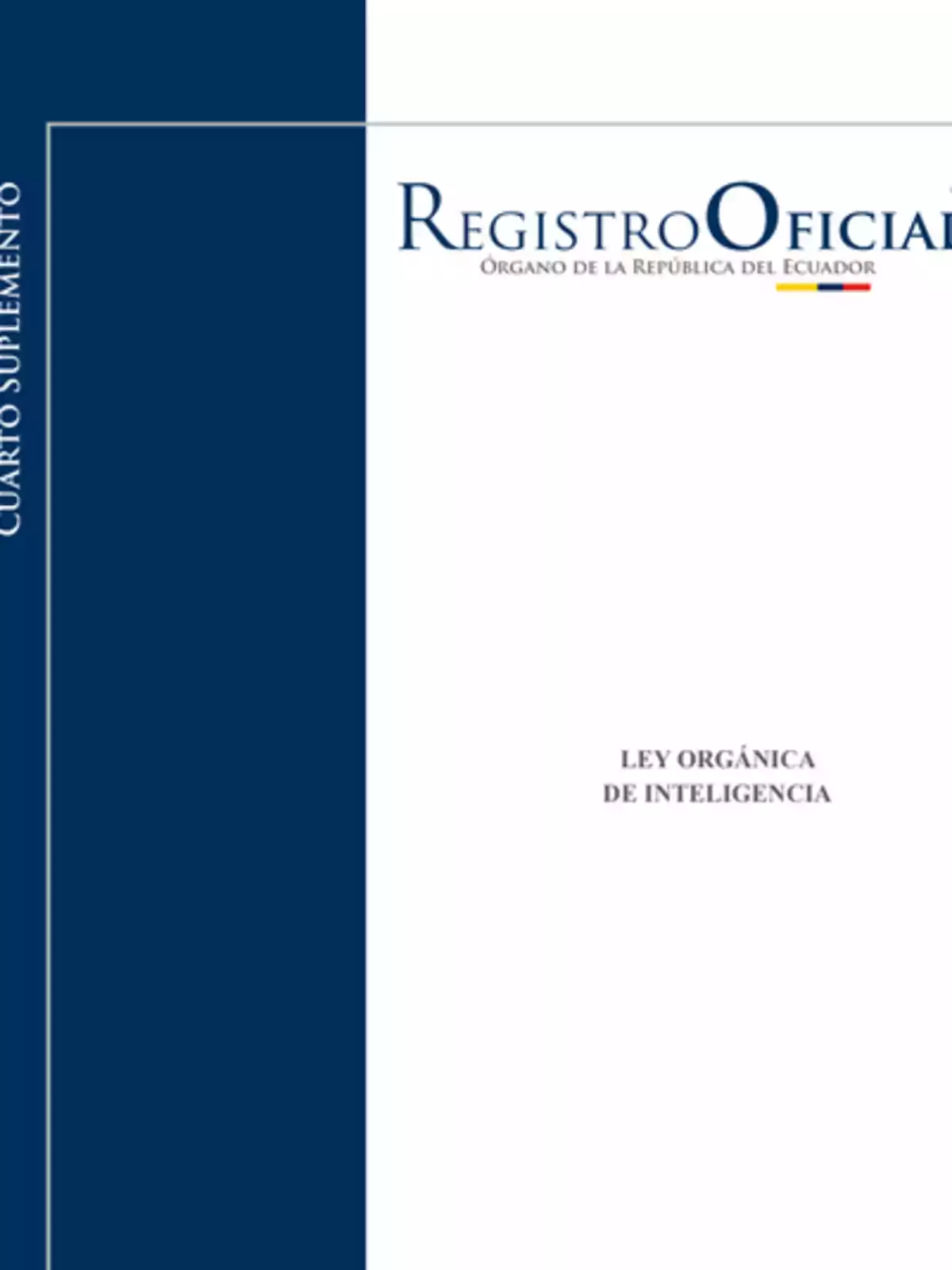
The Intelligence Law strengthened the state's fight against organized crime
President Noboa did not veto the regulation and prioritized national security over partisan interests
The Organic Intelligence Law came into effect on June 11, following its publication in the Official Register and without receiving any objections from President Daniel Noboa. This decision reinforces the Government's commitment to institutional strengthening to confront complex criminal threats throughout the country.
The regulation allows intelligence offices to request user information from telecommunications companies under certain legal parameters. Although sectors of Correísmo expressed fears of alleged intrusions, the law clearly establishes the principles of necessity, proportionality, and judicial oversight.
Additionally, it was legally recognized that intelligence agents may use fictitious identities as a legitimate tool in their work. This measure, common in international agencies, responds to the increasing sophistication of criminal networks operating in Ecuador and requires undercover actions for their neutralization.
The National Intelligence System will be composed of seven specialized subsystems, including military, police, financial, penitentiary, tax, and customs intelligence. The governing entity will be appointed by the Executive and must pass reliability tests, ensuring transparency and professionalism.

One of the key advances was the inclusion of a specific audit by the Office of the Comptroller General of the State for the supervision of reserved expenditures. This oversight ensures that resources used in intelligence are not diverted and serve strictly legal and operational purposes.
Security experts state that this legislation positions the country with a better capacity to respond to organized crime. Meanwhile, the sectors that voted against it, mainly from the Citizen Revolution, did not offer a solid alternative to the security problem that their government left unsolved.
With this law, Daniel Noboa's government prioritized citizen protection and institutional integrity, distancing itself from positions that, under the pretext of freedoms, disarmed the State in the face of international mafias. Ecuador is moving toward modern, legal, and supervised intelligence.
More posts: